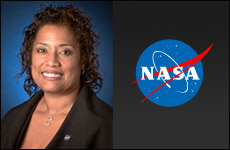Cybersecurity
-
Pat Howard, the chief information security officer at the Nuclear Regulatory Commission, joined In Depth to discuss NRC\'s cybersecurity efforts.
February 28, 2012 -
The Smarter Alliance Initiative found holes in its cyber defenses, and says that international cooperation is the best way to fix them.
February 28, 2012 -
The Homeland Security Department has been hunting down federal computers infected with the DNSChanger virus. The virus intercepts messages and sends victims to rogue web sites.
February 28, 2012 -
The National Security Agency has developed a better — and more economical approach — to fighting malware. Eric Chudow, a technical director for government mitigations in the NSA\'s Information Assurance Directorate, joined In Depth with Francis Rose to discuss the new method.
February 27, 2012 -
Security professionals see Bring-Your-Own-Device as an avenue for loss of enterprise data.
February 27, 2012 -
The National Institute of Standards and Technology says there are six steps agencies should take. NIST issues new guidelines for securing wireless local area networks, or WiFi.
February 27, 2012 -
A new FCC report finds the providers have the power to crack down on attacks like botnets, domain name fraud and IP address hijacking.
February 24, 2012 -
The space agency\'s CIO Linda Cureton said the I3P contracts are helping NASA stay on pace as technology matures. The agency already is seeing benefits from the three awards made in 2011. February 23, 2012
February 22, 2012 -
Jenn Scholtes, who covers homeland security for CQ-Roll Call, joined In Depth with Francis Rose to discuss the legislative wrangling over the Senate cybersecurity bill.
February 22, 2012 -
A survey by the information security certifying organization (ISC)2 found demand is high and salaries increasing for information security personnel.
February 22, 2012 -
NIST\'s 2012 appropriations provided $10 million to establish the center near NIST\'s Gaithersburg, Md., campus.
February 22, 2012 -
The Army and DISA are using more disciplined processes to implement technology upgrades. Email-in-the-cloud also is giving the Army better a firmer cyber posture, and it opens the door for a host of emerging technologies because of better identity management.
February 22, 2012 -
Hackers might be gearing up to shut off power in your office. National Security Agency Director General Keith Alexander says the group Anonymous might have that capability in the next year or two.
February 21, 2012 -
According to a new report by Symantec\'s Norton Internet Security and Sperling\'s BestPlaces, Washington, D.C. has the highest risk of cybercrime in the country.
February 20, 2012 -
The CIA says its private sector funding arm, In-Q-Tel, will work with Reversing Labs to develop a program it will offer to both the public and private sectors.
February 20, 2012



